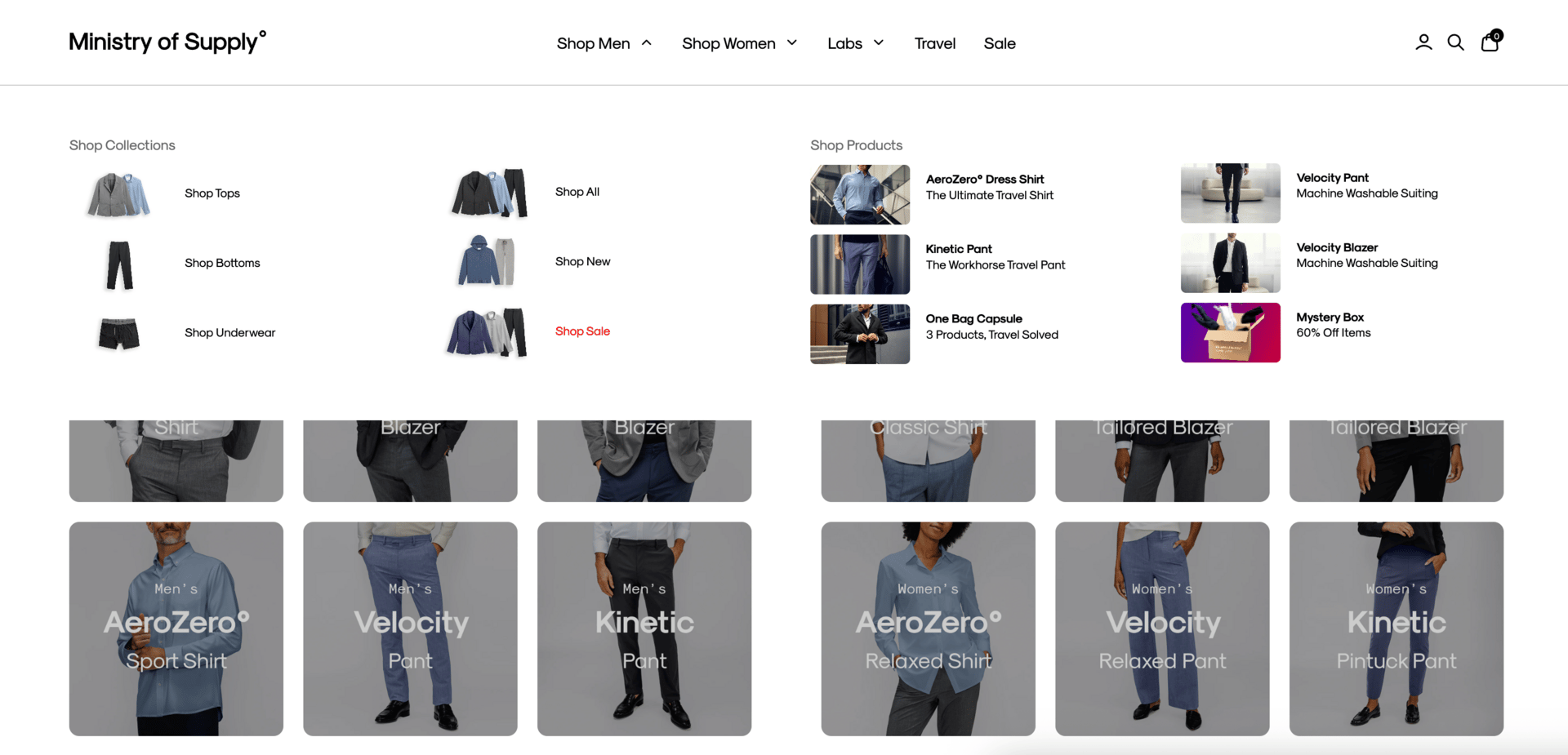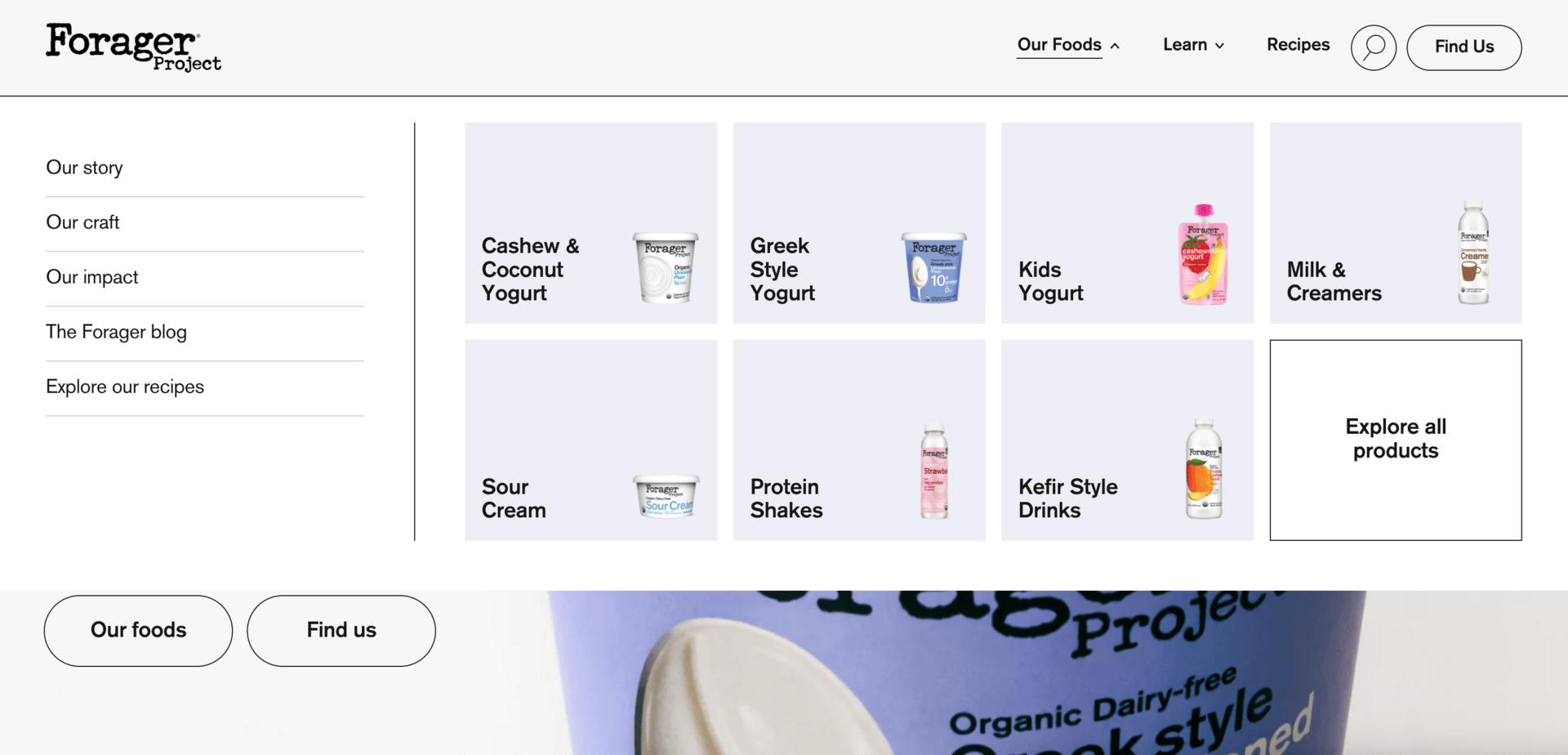- Platter Newsletter
- Posts
- 76% of stores fail at this...
76% of stores fail at this...
Hint: It’s not checkout, facebook ads, or landing pages.
Hey, it’s Cam from Platter 👋
This week we’re talking navigation. Sexy, I know, but hear me out…
My hypothesis is that most ecommerce teams spend the majority of their time optimizing things closest to checkout: Facebook ads, landing pages, and checkout. Meanwhile, one of the highest-trafficked parts of the user journey often gets overlooked — navigation.
And Shopify’s data backs this up — 76% of ecommerce sites get a failing grade on navigation. Baymard Institute, who did the research, grades navigation on things like:
Category taxonomy (are products grouped logically?)
Clarity of labels (are categories instantly understandable?)
Ease of finding products (are menus and category pages frictionless?)
Discoverability and cues (is it obvious where to find stuff and what’s clickable?)
Most stores (excuse my french) suck, which is why the ones that nail it really stand out.
So, here are 5 brands who’ve done a fantastic job designing their nav.
Ministry of Supply
Ministry of Supply’s nav is a textbook example of how to handle a large catalog without overwhelming shoppers. Their mega menu neatly splits collections (tops, bottoms, underwear), surfaces New and Sale, and highlights hero products like the Kinetic Pant and AeroZero Dress Shirt right inside the nav. It’s easy to orient and nudges shoppers towards best-sellers.
Sun Bum
Sun Bum uses a nested menu style that lets shoppers drill down by collection, supported by scrolling tiles and hover animations. The interactivity makes it crystal clear what you’re about to click on, while still feeling playful and aligned with their fun brand style.
Forager Project
Forager leans on a visual-first navigation. Every category is paired with a product image, so shoppers can instantly recognize cashew yogurt vs. protein shakes vs. kefir drinks. It’s super easy to use, especially in a category where plant-based alternatives can be unfamiliar. The “Explore all products” tile is a smart catch-all for anyone who just wants to browse everything at once.
Is your store’s nav helping or hurting conversion?
Meet with our expert team and get a free analysis of your nav, UX, and overall performance of your store. See what’s working, how you compare to competitors, and see what’s possible with Platter.
Unplugs
Unplugs is a great example of how to build a navigation for a single-product brand. Just two categories (earbuds and accessories), paired with large product images and a bold “Shop All” button, keep the journey intuitive as heck. With so little clutter, customers are basically guaranteed to the find the product they are looking for.
Mugsy
Mugsy’s mega menu is built using smart categorization. Jeans, chinos, joggers, and shorts are broken out clearly, with sub-labels like “Shop by Fit” making it easy for shoppers who aren’t sure where to start. It’s straightforward, scannable, and keeps conversion paths short.
PARTNER SPOTLIGHT
Sales tax compliance is complex, costly, and constantly changing. Unless you work with Zamp.
Zamp combines powerful automation with expert tax professionals to handle multi-state sales tax compliance for high-growth ecommerce brands. They monitor nexus thresholds, registrations, product taxability, and file sales tax returns, so you can focus on scaling your business instead of navigating tax regulations.
Growing brands like Oats Overnight, David Protein, MoonBrew, and Portland Leather Goods trust Zamp to eliminate sales tax headaches across all 50 states. Their managed solution means you never have to learn complex tax rules or worry about costly penalties again.
With Q4 sales driving businesses like yours past nexus thresholds in new states, now is the critical time to get your compliance strategy in order. Zamp is offering a free nexus assessment to help you identify exactly where you have tax obligations and what it takes to stay compliant.
The assessment covers your current exposure and a clear roadmap to bulletproof compliance. No upfront obligation required — just expert guidance on protecting your business.





